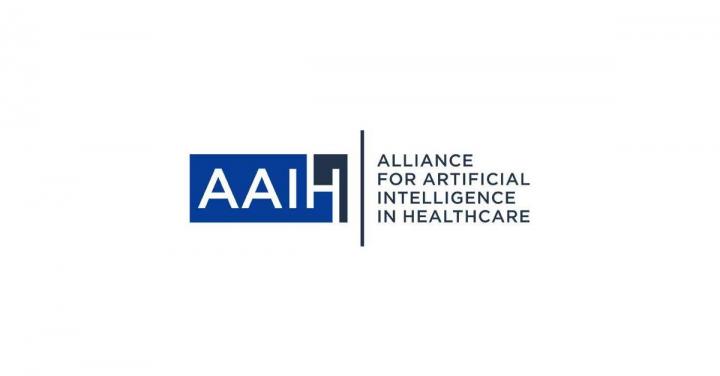Technical whitepaper, as well as a high-level overview, seek to define a foundational lexicon and illustrate real-world applications of this growing technological movement to improve patient outcomes

Credit: AAIH
BALTIMORE, Md.–October 17, 2019–The Alliance for Artificial Intelligence in Healthcare (AAIH) today announced the publication of its first whitepaper, “Artificial Intelligence in Healthcare: A Technical Primer.” This 45-page document seeks to introduce the various topics and help introduce standard definitions for the industry. Since the term ‘Artificial Intelligence’ was first introduced by John McCarthy in 1956, it has grown to become pervasive in conversations about the future of healthcare. This whitepaper is intended for the broader healthcare community, including the scientific press, researchers, developers, and other technically inclined healthcare practitioners and administrators. A shorter executive summary is also available for a non-technical look at applications of AI in healthcare.
“AI has the potential to transform medicine through novel models of scientific discovery and healthcare delivery leading to improved individual and public health outcomes. Yet misunderstanding and miscommunication abound. Therefore, the concepts related to AI need to be defined and explained in order to elevate our general level of understanding of and discourse around the topic,” said Annastasiah Mudiwa Mhaka, Ph.D., co-founder and president of AAIH.
The paper is authored by top subject matter experts within AI in healthcare across multiple disciplines, including Brandon Allgood, CTO & co-founder of Numerate; Oscar Rodriguez, Chief Architect at BlackThorn Therapeutics; Jeroen Bédorf, Senior System Architect at minds.ai; Pierre-Alexandre Fournier, CEO at Hexoskin; Artur Kadurin, CEO at Insilico Taiwan; Alex Zhavoronkov, founder and CEO at Insilico Medicine; Stephen MacKinnon, VP of Research and Development at Cyclica; Rafael Rosengarten, Founder and CEO at Genialis; Michael Kremliovsky, Director of Medical Devices & eHealth at Bayer; Aaron Chang, Strategy and Technical Advisor at AAIH and Dr. Mudiwa Mhaka.
“There are tremendous advantages for using AI in healthcare, but also the real possibility to cause harm,” said Allgood, the lead author of the paper. “As an industry, we must build solid foundations, this paper being the start of that, and work together with governments and patients to advance the responsible use of AI. By engaging with a wide array of participants across the healthcare spectrum, we can actualize the promise of AI in medicine thereby improving patients’ lives and creating more efficient, sustainable, and accessible healthcare systems.”
Both the full whitepaper and the executive summary are available for download on the publications section of the AAIH website.
###
ABOUT AAIH
The AAIH is a coalition of technology developers, pharmaceutical companies, and research organizations who have expressed the common goal of realizing the potential for AI and machine learning in healthcare to significantly improve quality of care, but who also recognize the need to address substantial industry challenges. By convening stakeholders to present a unified voice, we are working to establish responsible, ethical, and reasonable standards for the development and implementation of AI in healthcare. As an organization, the AAIH brings together industry, academia, research institutions, government NGOs, key opinions leaders, and other international stakeholders to develop appropriate regulatory principles. By engaging with a wide array of participants across the healthcare spectrum, the AAIH works to actualize the promise of artificial intelligence in medicine thereby improving patients’ lives and creating more efficient, sustainable, and accessible healthcare systems. For more information, please visit http://www.
Media Contact
Andrea Vuturo
[email protected]




